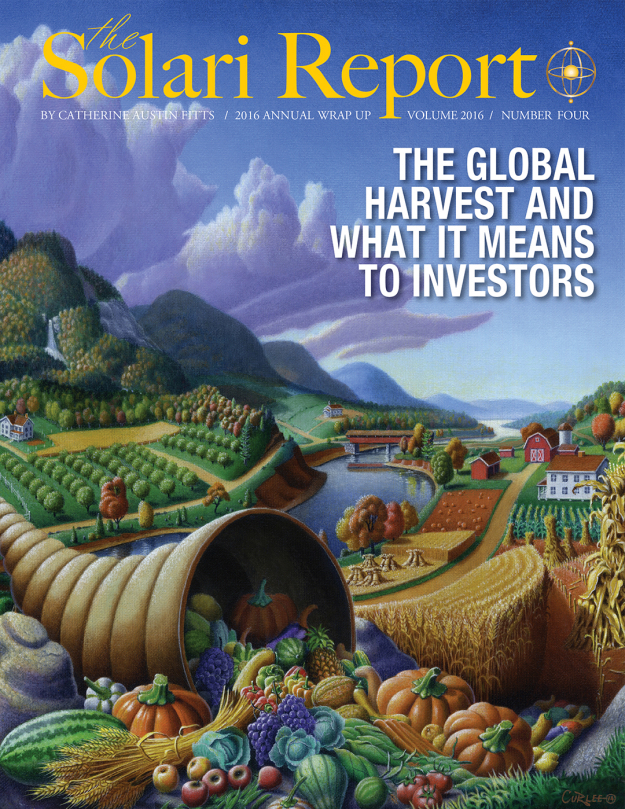
“Our task is to look at the world and see it whole.” ~ E. F. Schumacher
Every year, the Solari Report publishes an Annual Wrap Up of all the impactful news and events that occurred throughout the course of the year as well as any major trends that we believe will be significant moving forward. We often present these in multiple parts, and we have now finished rolling out all parts of our 2016 Annual Wrap Up! Below is a list of the publication series.
- News Trends & Stories Part I
- News Trends & Stories Part II
- Equity Overview & Rambus Blockbuster Chartology
- The Global Harvest and What It Means to Investors
Solari Report Subscribers also have access to the now fully complete web presentation as well as all recorded audios!
Stay tuned for the PDF and Printed versions which will soon be available as well! You can get a sneak peek of it here!
Solari readers who are interested in subscribing can learn more here
Here is what subscribers had to say about the 2016 Annual Wrap Up.
“One of your finest presentations.”
“You’re “2016 Annual Wrap Up” is superb in it’s depth, clarity, and practicality! Thank you so much for your earnest efforts. It helps me with my investment allocations.”
Here is just a taste from this year’s theme: The Global Harvest and What It Means to Investors
Food: On or Off the Radar Screen?
We all have a personal, intimate connection with food. We shop, we cook, some of us garden, and we all eat. We share this personal, intimate connection with every human being and all the animals on Planet Earth. We have access to food and water or we die. This creates what economists call an inelastic demand. In one sense, our demand for food and water is like our demand for oxygen. Our living systems demand food to survive and thrive.
The importance of food can be seen in many different ways. A great deal of valuable land is dedicated to providing us with crops. A population of over 26 billion animals is being tended to provide us with meat. The oceans are continually harvested to provide us with fish. In most areas of the world, grocery stores and restaurants abound. Our daily lives dedicate a significant amount of time to accessing, preparing, eating and digesting food.
But for many of us, food is not really on the radar screen. We have come to take the availability of food for granted.
Workforce
Prior to the industrial revolution, the majority of people on earth worked in agriculture and farming. In today’s world, a much higher percentage of the population is urbanized and a smaller number of people are involved in growing or raising food. The percentage of the population in the G-7 nations working in agriculture ranges from 0.7% in the United States to 3.9% in Italy. In the emerging markets, this percentage is much higher:
Mexico: 13.4%
China: 33.6%
India: 49%If you live in the developed world, it is likely that you know more doctors, software developers, lawyers, electricians, plumbers or government officials than farmers.






The link for News trends and stories part 1 does not seem to be working
Thanks, Scott. I have asked the team to fix.
It is fixed! Thanks again, Scott.